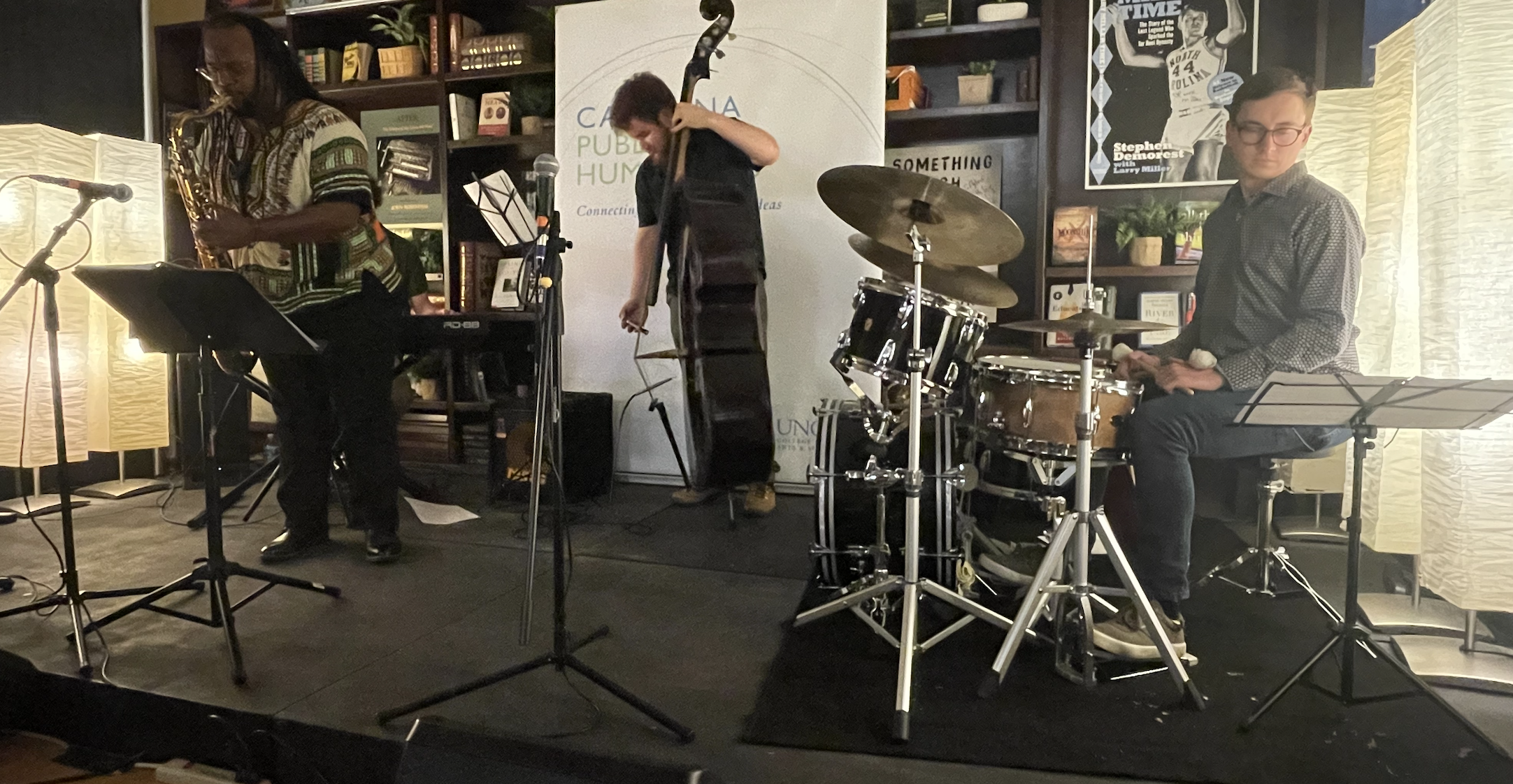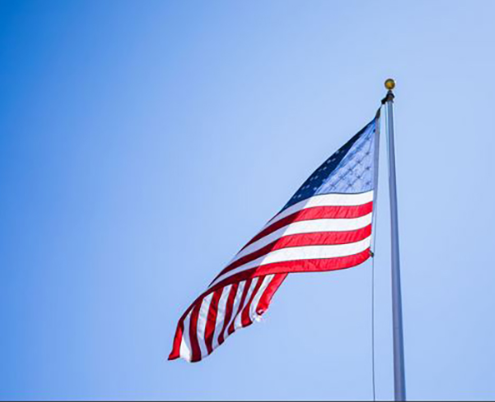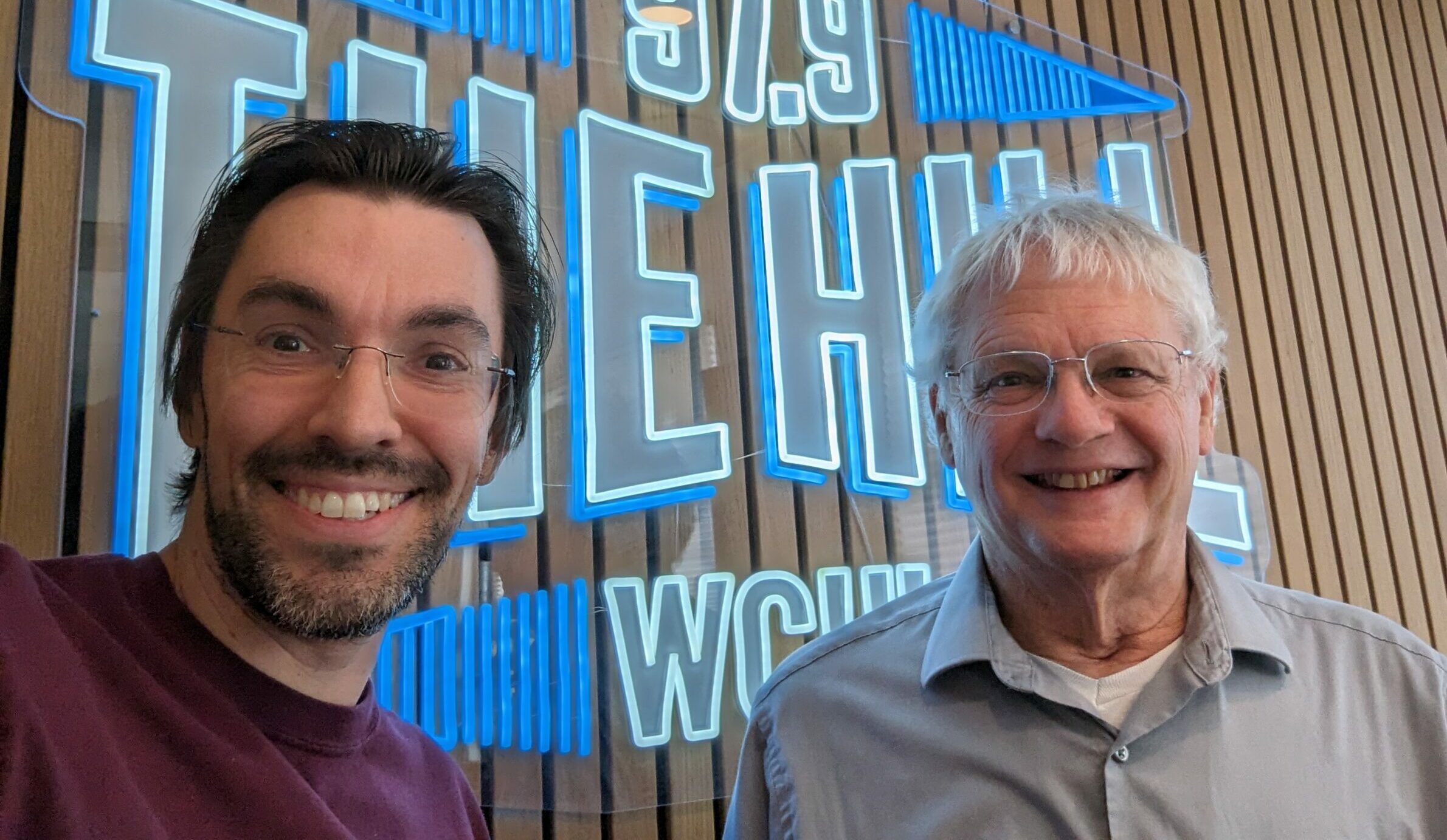The conclusion of a six-part series by Carolina Public Humanities is set to take place on Friday afternoon, with UNC history professor Matt Andrews giving an in-depth look at another side of Michael Jordan in a discussion called A Basketball God Reconsidered.
Director of the Carolina Public Humanities department Max Owre joined 97.9 The Hill’s Aaron Keck recently for an interview with Andrews, who looks at Jordan through an activist lens.
The most famous athlete in the world for much of his career, Jordan lived his life completely in the public eye. His exploits on the court were legendary, while his business sense off the court was unparalleled among athletes—bringing him an incredible larger-than-life status.
When it came to political issues, however, he was notoriously silent. During the 1990 North Carolina Senate campaign between black democratic candidate Harvey Gantt and republican incumbent Jesse Helms—a highly controversial figure for his racist views—Jordan’s mother and UNC head coach Dean Smith wanted him to do a public service announcement for Gantt. Jordan declined, saying that Republicans buy sneakers too.
That one comment has been used for nearly three decades as a way to quickly describe Jordan’s overall ideology on political issues.
“I like to frame Jordan in the context of black activism,” Andrews said. “I talk a lot in my courses about athletes like Muhammad Ali and Tommie Smith and John Carlos and we celebrate the activism in the 1960’s of African-American athletes. And then Jordan, right or wrong—and I actually think it’s fair—has come to represent the lack of activism. The lack of sort of political guidance coming from black athletes in the 1980’s and the 1990’s.”
Andrews does credit Jordan for creating the platform for athletes to become larger than their teams or their sports, something that has allowed some of today’s stars like LeBron James and Colin Kaepernick to make an impact and have their voices heard on a broad scale.
In recent years and weeks, though, Jordan—now the owner of the NBA’s Charlotte Hornets—has begun to change his attitude.
The Black Lives Matter movement spurred Jordan to donate $1 million apiece to the NAACP Legal Defense Fund and the Institute for Community-Police Relations in 2016 as part of an effort to build relationships between law enforcement and the black community. With recent events bringing Black Lives Matter back into the public spotlight, Jordan again stepped up to the plate — pledging $100 million over 10 years to social justice organizations fighting racial inequality.
“Things are changing quickly and Michael Jordan seems to be a part of this change as well,” Andrews said. “He’s become very outspoken on issues and putting his money where his mouth is. And his mouth used to not be there. So, now both of them are on display.”
It’s also a credit to the power of the Black Lives Matter movement that a figure as well-known and powerful like Jordan can change his attitude after years of willingly keeping himself out of these types of discussions.
Michael Jordan will never have an activist legacy like Muhammad Ali, Kareem Abdul-Jabbar or Bill Russell, but as a hero and a symbol to so many across the world his willingness to change a longstanding belief can set an example for others to learn from and follow themselves.
“I think this changes the narrative,” Andrews said. “It’s a reminder to all of us that we evolve. Hopefully, most of us evolve over time. And we see that remarkable evolution happening with Jordan and so many people just in these last 14 days.”
For more information on Friday’s discussion — which will be recorded and available on YouTube — visit the Carolina Public Humanities’ website.
Photo via Bryan Horowitz/Flickr.
Chapelboro.com does not charge subscription fees. You can support local journalism and our mission to serve the community. Contribute today – every single dollar matters.




